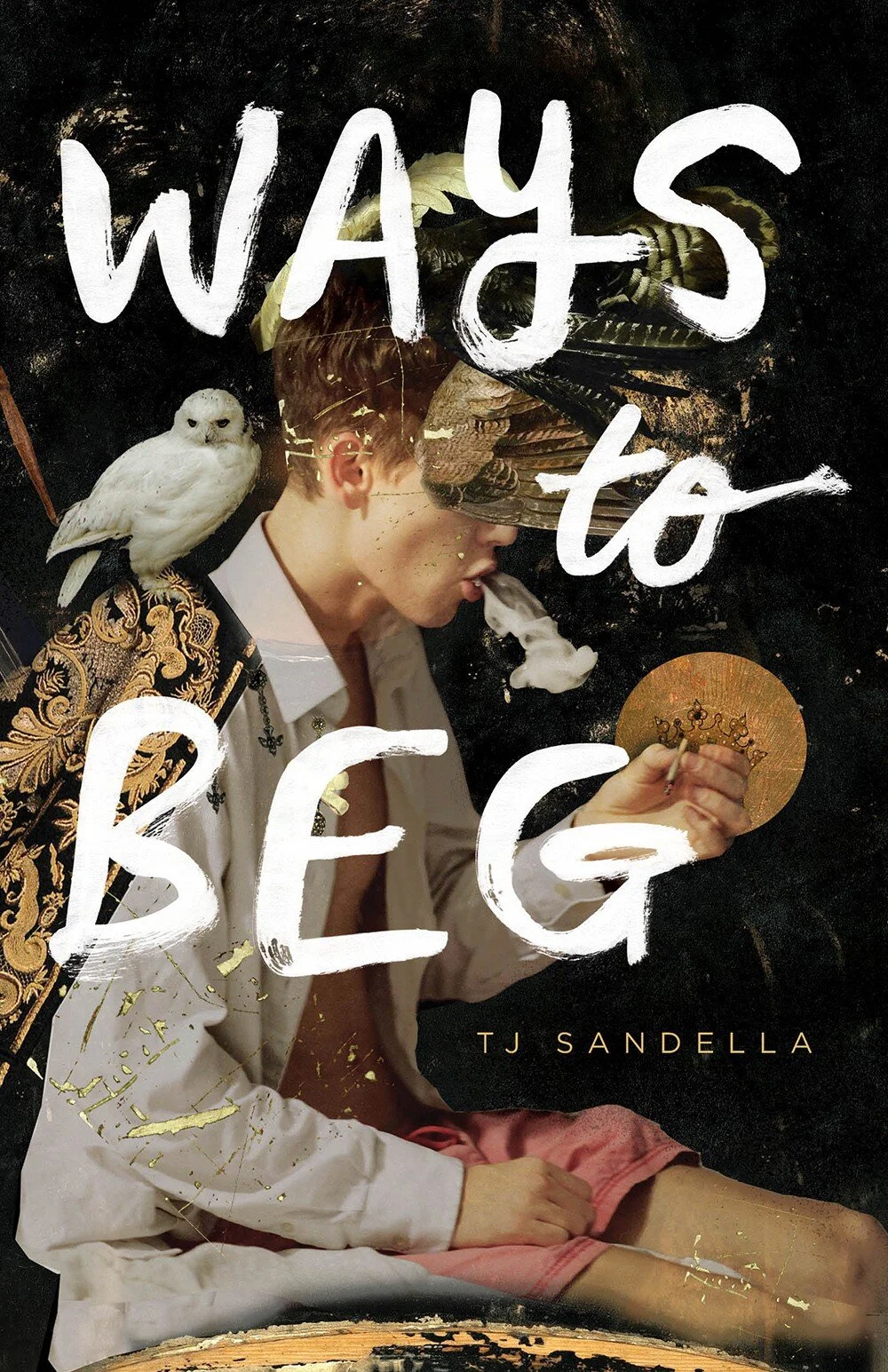Ways to beg by tj sandella,
REVIEWed BY Gt GORDON
There is a beautiful urgency that greets readers right from the start of T.J. Sandella’s debut poetry collection, Ways to Beg (Black Lawrence Press, 2021). Composed of thirty-eight poems, Sandella’s collection begins with a plea, then dances from humor to a gut-punch of emotion within a few lines. Sandella pulls on pop culture, Shakespeare, faith, and mythology to tease out capacious questions throughout this collection. Ways to Beg, as the title suggests, is a layered manual of asks: Almost every poem makes an appeal for something, be it forgiveness, navigation through grief, or a way to understand the past or the terrifying direction of our world.
“Arrival,” the first poem in the collection, begins as a quest for understanding the start of human existence. Themes of needing and wanting and pleading develop through the crop of questions posed at the birth of the first poem. It begins with “it could be true / someone crafted us out of clay, wrenched man’s rib and named / the sharp bone / wife” and posits other theories about the start of the universe. The piece ends with the questions: “Or are we destined to harvest? To sow every spring? / Do we never stop asking?” These inquiries of origin and purpose preface the collection as a pebble dropped in water, reverberating and growing in great cycles throughout. The speaker suggests that as we live, we get better at begging, at asking these questions and sharing these conversations, though perhaps the fully realized, definitive answers never arrive.
As the collection continues into Part I, “Abracadabra” presents the story of Harry Houdini and his suffering. The speaker makes a direct plea to the reader: “I’m asking you to think / of his ruptured appendix, his organ leaking blood / like milk from a cracked glass.” He continues to ask, “how many blows can we take? How many / sacrifices can we make?” These questions are unanswered, the weight of them instead placed upon the reader to consider. In “Apartment B,” the speaker repeats “I don’t ask” followed by a series of unspoken thoughts, effectively posing questions without formally asking them. This too is an arc carried throughout the collection: questions that hang in the air without even being posed, answers considered but never solidified.
Throughout Part I, Sandella faces the trouble of recent years head-on. He tackles Twitter quotes, environmental anxieties, racial tension, and family trauma. He achieves this bottling of anger and confusion and releases it into sharp metaphors, imagery, and alliteration. “Loneliness,” the last poem in part I, constructs the apex of this layering of unrest:
We’re talking
about loneliness
how it’s swaddled
and entrusted to us
and how you never really know
if it will say please
and thank you
and grow up
to mediate
and learn from its mistakes.
The remainder of Part II centers on grief and the challenges of healing. As the collection nears its conclusion, the poems read as salves for the wounds presented in Part I. We see more instances of nature and feel the presence of faith, gratitude, and hope. “Kayaking, Early Morning” continues this complicated discussion of faith:
With so much sleight-of-hand splendor,
he could come and he could go,
and no one could ever say he didn’t give
at least one of us a chance to understand
this misery, this bewildering beauty.
The final poem bookends the collection with hope for the future through an image of regression to a simpler time. This poem answers the question posted at the start with a vision of peace: “all of us…. worshipping the earth / sea and stars feeding each other / berries from our stained / and calloused hands.” Ultimately, Ways to Beg is instantly resonating. It feels like an invitation to a conversation with a long-lost friend, both heart-shattering and heart-mending all at once.
June, 2021
GT GORDON
G.T. Gordon received her MFA in creative writing at Chapman University and is a teacher in Southern California. She has studied English, film, and music. Her fiction and poetry pieces usually explore the complicated process of finding one's identity in youth and the tangled relationship that binds reality, memory, and perception. Her work has been published in L.A. Record, RipRap, Plants, and Poetry Journal, and is forthcoming with Porkbelly Press. You can connect with her on Instagram @g.t.gordon or on her website, gtgordon.com.



